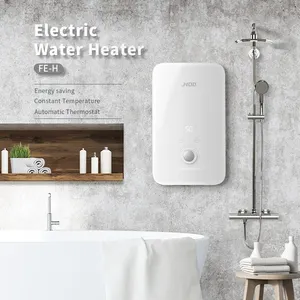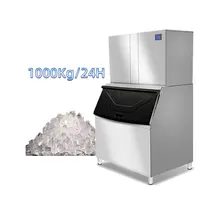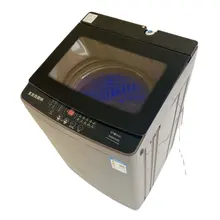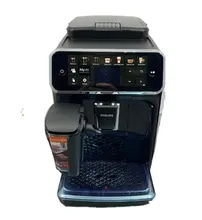Introduction
This article provides a comprehensive analysis of electric tankless water heaters. It delves into the mechanism of these heaters while illustrating comparisons to their gas counterparts. With emphasis on factors such as size, efficiency, limitless hot water, and household savings, the article further details the benefits of choosing electric tankless water heaters. You'll be introduced to the concept of UEF ratings and their significance in determining energy efficiency. Highlighting various top electric tankless water heaters, this article offers a guide to help you decide which one matches your specific requirements.
Exploring Electric Tankless Water Heaters
The most significant difference between gas and electric tankless water heaters is their source of energy to heat water. Gas tankless water heaters use natural gas or propane to heat water, whereas electric models rely solely on electricity. Electric and gas tankless water heaters use different energy sources to heat water but differ in how they produce heat. Electric water heater has heating elements made out of metal that heat up when an electric current passes through. This heat is then transferred to the incoming water and becomes available as hot water at a fixture.
Why Choose Electric Tankless Water Heaters
Tankless water heaters take up a lot less space than a traditional tank-style heater, and they are typically more efficient. These systems heat water on demand instead of continually maintaining the heat level of an entire tank of water. On-demand hot water is achieved by running a cold water line into the tankless water heater so that the water flows through the heating element. Additionally, there is no limit to the amount of hot water, so users don't need to worry about running out midway through a shower.
Looking into the Efficiency of Electric Tankless Water Heaters
Tankless electric water heaters are among the most efficient choices for residential, commercial and industrial settings due to a number of reasons. They are 90 percent smaller than tank heaters, enabling installation closer to the point of use, and can provide hot water faster, thus saving water. Less heat is lost in transit, and they can achieve a thermal efficiency rating of up to 99 percent, potentially leading to electricity savings of up to 50 percent on water heating bills. However, despite their high efficiency, tankless electric water heaters are not Energy Star-approved due to certain measurement standards.
Understanding Energy Efficiency Ratings
What Is a UEF Rating? In short, the UEF, or Uniform Energy Factor, measures the efficiency of a water heater. The higher the number, the more efficient the water heater is. Most water heaters, both tank and tankless, have an efficiency rating ranging between 0.55 and 0.93 UEF. When comparing, the higher the UEF the lower the projected operating costs. The UEF rating is just one of several important considerations when purchasing a new water heater.
The Benefits of High Energy Efficiency
Tankless water heaters offer a multitude of benefits due to high energy efficiency. They heat only as much water as you need, reducing energy use by up to 34%. Consequently, they lower utility bills, with the potential to conserve 27 to 50% more energy than traditional heater models, yielding significant savings annually. They have a longer lifespan, often outlasting conventional heaters by 5 to 10 years. Tankless heaters provide a continuous supply of hot water, and they require less space in the home due to their compact size. Furthermore, tankless heaters require comparatively less maintenance, functioning well for longer periods without service.
Highlighting the Best Electric Tankless Water Heaters for Energy Efficiency
Let’s take a look at the top electric tankless water heaters. They range from point-of-use water heaters to efficient equipment designed to provide on-demand hot water. Notable heaters include Stiebel Eltron DHC Trend Point-of-Use Electric Tankless Water Heater, Rheem 18kw and 13kw Tankless Electric Water Heaters, Eemax 27kW Electric Tankless Water Heater, and EcoSmart ECO 27. Each has unique features that make them suited for different needs.
Review of Each Top Energy Efficient Heater
The 5 Best Electric Water Heaters Of 2023 include Stiebel Eltron DHC Trend Point-of-Use Electric Tankless Water Heater, Rheem 18kw Tankless Electric Water Heater, Rheem 13kw Tankless Electric Water Heater RTEX-13, Eemax 27kW ELECTRIC TANKLESS WATER HEATER, and EcoSmart ECO 27. The Stiebel Eltron model offers low price, flow rate protection, and simple installation. However, it lacks a temperature indicator. The Rheem 18kW model is a versatile option from a trusted company with a high efficiency rating. The Rheem 13kW is recommended for point-of-use or a few fixture applications. The drawbacks include high electrical demand and it requires two circuit breakers.
Important Considerations when Buying an Energy Efficient Heater
Determine your budget. Factor in portability. Identify which features you want. Look for key safety features. Read on to see other safety tips for space heaters. Shop for a space heater with a label from a recognized testing laboratory, such as UL Solutions or ETL, verifying that the heater’s construction and performance meet safety standards. Space heater sizes are just as important. Larger space heaters cover more space; smaller ones tend to cost less. Multiple space heaters might be necessary to heat an entire home, thus, it's crucial to compare their footprints and capacities before choosing.
Conclusion
In conclusion, electric tankless water heaters offer several advantages over traditional heaters, including high energy efficiency, on-demand hot water, space-saving designs, and potential reductions in utility bills. While evaluating and choosing the right model, necessary factors to be considered include safety standards, size, specific features, and budget. Not only are these heaters viable solutions for residential, commercial, and industrial settings but also they promote sustainability and reduce carbon footprint thereby contributing to a greener environment.











































 浙公网安备 33010002000092号
浙公网安备 33010002000092号 浙B2-20120091-4
浙B2-20120091-4